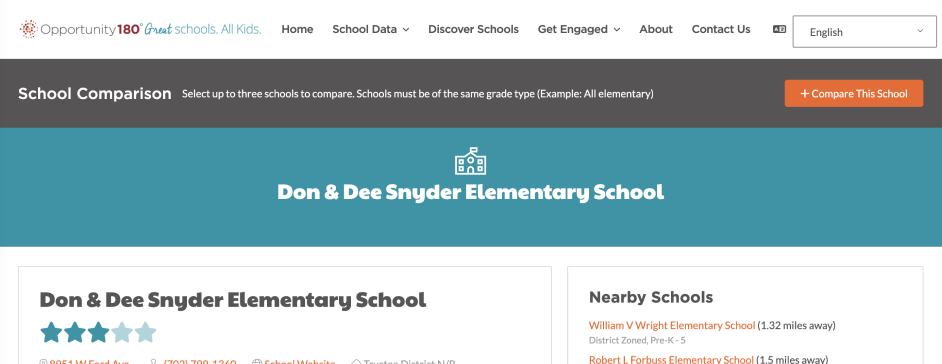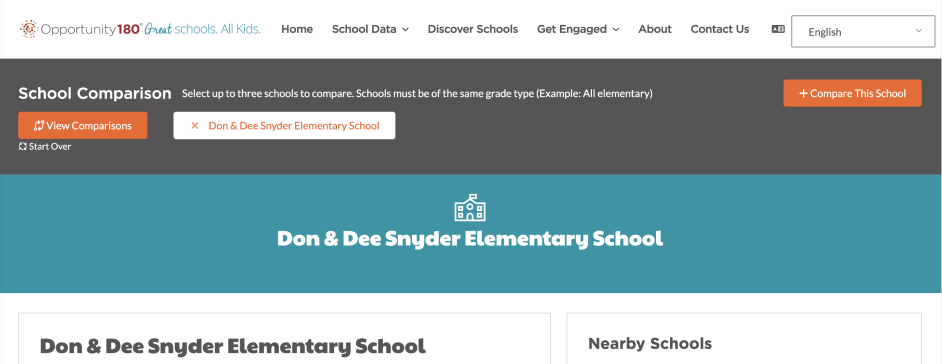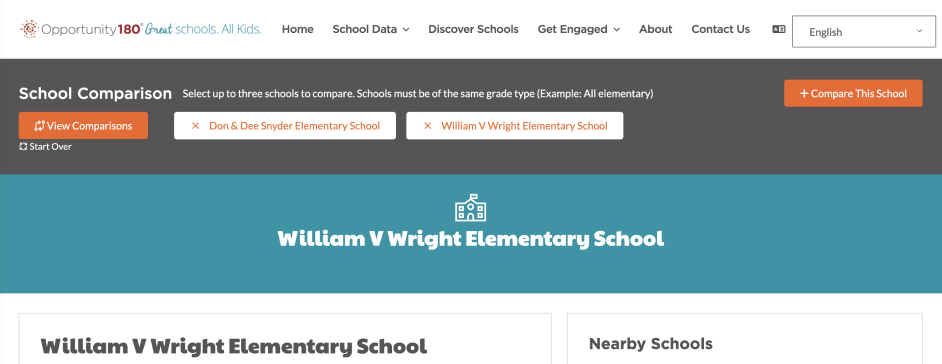High Desert Montessori Middle School
Nearby Schools
School Details
The total number of students enrolled at a school.
The total amount of money spent per student that year. This number includes federal, state, and local funds, and includes grants and appropriations.
The percentage of students who do not finish the school year at the same school they started.
- District Zoned School - Your neighborhood public school, based on where the student lives. District Zoned Schools serve all students without restrictions.
- Public Charter School - Schools of choice open to all students regardless of where they live. Charters operate without some of the regulations of district schools but are still held accountable to academic results and student achievement.
- Public Magnet School - Schools that offer programs in specific focus areas, such as math, fine arts, science, or health. Entry to an elementary or middle school magnet program is interest-based.
- Career and Technical Academies (CTA) - A type of Magnet School. Entry to a CTA program can be criteria, performance, and/or interest-based.
Substitute teachers that teach for more than ten days in a row in a school for the same teacher.
School Population
Students who speak a language other than English when they first enroll in school and receive support to grow and improve in English Language Arts.
Students who qualify for free or reduced lunch based on household income.
Students receiving special education services.
| White | 57% | |
| Hispanic | 31% | |
| Two or more races | 5% | |
| Asian | 4% | |
| Black | 2% | |
| In/AK Native | 1% | |
| Pacific Islander | 1% |
School Performance
English Language Proficiency
Student Engagement
Growth
Opportunity Gaps
How many kids at this school are on or above grade level?
Academic Achievement is a measure of the end of year state assessment called the Smarter Balanced test (SBAC). On a grading scale of 1 through 4, a student receives a 3 for proficient or a 4 for advanced. This is also referred to as "on grade level" or "above grade level."
For Middle Schools, this number includes students who take the end-of-course exam.
Academic Achievement
Equity in education means personal or social circumstances do not impact achievement. This data shows students on or above grade level across the school's student population. Differences may suggest some student groups are not getting the support to succeed. Note: Subgroups that are less than 25 in the total number of students tested are not included here.
Growth
Growth is a measure of:
- Median Growth Percentile (MGP): tells us how well a school is supporting the growth of all students compared to last year.
- Adequate Growth Percentile (AGP): tells us how many students are growing fast enough to be on grade level within three years.
How fast are students at this school getting better at Math?
How fast are students at this school getting better at Reading?
Equity in education means personal or social circumstances do not impact achievement. Differences may suggest some student groups are not getting the support to succeed.
How is this school doing with students who need extra help to learn the English language?
This percentage of students are on track to no longer need services for English language skills within five years.
Opportunity Gaps
Opportunity Gaps is a measure of growth among students who were not on grade level on the state assessments the previous school year. This tells us the number of students who were not on grade level last year who are on track to be on grade level within three years (meeting their Adequate Growth Percentile benchmark in the current year).
How many students who were not on grade level last year met their growth benchmark in Math?
These are students who were not on grade level last year are on track to be on grade level within three years.
How many students who were not on grade level last year met their growth benchmark in English Language Arts?
These are students who were not on grade level last year are on track to be on grade level within three years.
Note: this category uses one of the same measures as used for the Growth category, Adequate Growth Percentile, but looks specifically at student subgroups who need extra support to move from "not on grade level" to "on grade level".
Student Engagement
A student that is absent 10% or more of the total days enrolled in a school will be identified as chronically absent. A student must be enrolled in a school for at least 91 days of the current school year to be included in this calculation.
How many students at this school were chronically absent?
How many students participated in Academic Learning Plans?
School Climate
The Nevada School Climate/Social Emotional Learning Survey (NV-SCSEL) is given to students each fall. It is used by schools to understand how students feel about the quality of school life.
School Discipline
Nevada law requires each school to report incidents of disciplinary action by race and ethnicity
No data indicate that the school did not report any recorded instances of discipline in the selected category.
Learn more about school climate






